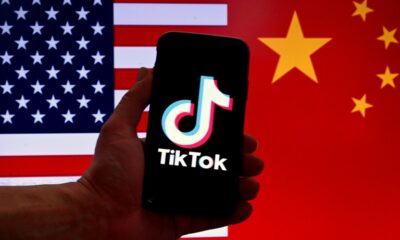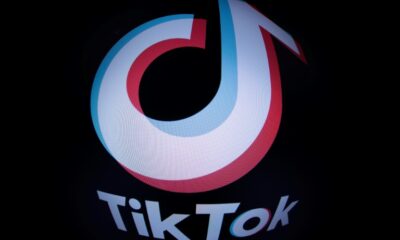The EU on Monday hit Apple, Google parent Alphabet and Meta with the first ever probes under a mammoth digital law, which could lead to big fines against the US giants.
The European Commission, the EU’s antitrust regulator, announced that it “suspects that the measures put in place by these gatekeepers fall short of effective compliance of their obligations under the DMA” — the bloc’s Digital Markets Act.
Since March 7, six of the world’s biggest tech companies — Alphabet, Amazon, Apple, TikTok owner ByteDance, Meta and Microsoft — have had to comply with the EU’s landmark DMA after being named so-called “gatekeepers”.
The DMA has lofty goals of creating a fairer digital space by curbing how the biggest companies act online, including ensuring they give users more choice.
Senior officials have acknowledged that changes are already taking place, but suggested that they did not go far enough.
“We are not convinced that the solutions by Alphabet, Apple and Meta respect their obligations for a fairer and more open digital space for European citizens and businesses,” said the EU’s internal market commissioner, Thierry Breton.
Under the new rules, the commission can impose fines of up to 10 percent of a company’s total global turnover. This can rise to up to 20 percent for repeat offenders.
In extreme circumstances, the EU has the power to break up companies.
Unlike the EU’s traditional rules that saw probes last for years, the DMA demands regulators act fast and complete any investigation within 12 months of its start.
– Restriction fears –
Monday’s probes are focused on whether Alphabet’s Google Play and Apple’s App Store are allowing app developers to show consumers offers, free of charge, outside of those app marketplaces.
“The commission is concerned that Alphabet’s and Apple’s measures may not be fully compliant as they impose various restrictions and limitations,” it said in a statement.
Alphabet is also under suspicion over whether Google search results favour its own services — Google Shopping, Google Flights and Google Hotels — over rivals.
The EU slapped a whopping 2.4-billion-euro ($2.6 billion) fine on Google in 2017 over similar claims of self-preferencing.
Apple is also under the spotlight over whether it allows users to easily uninstall apps on its iOS operating system and the design of the web browser choice screen.
Under the DMA, the gatekeepers must offer choice screens for web browsers and search engines in a bid to level the playing field and give users more options.
Meta faces more problems over its ad-free subscriptions model, which has already been targeted by three complaints since it launched in November.
The commission fears the “binary choice” for EU users “may not provide a real alternative in case users do not consent, thereby not achieving the objective of preventing the accumulation of personal data by gatekeepers”.
Meta has faced an avalanche of legal problems in the EU over its data processing, including a 1.2 billion-euro fine last year for data privacy breaches.
– Turning sour on Apple –
In a separate move, regulators will also explore whether Amazon may be favouring its own brand products on the Amazon Store and whether Apple’s new fee structure for alternative app stores “may be defeating the purpose” of its DMA obligations.
EU regulators also ordered Alphabet, Amazon, Apple, Meta and Microsoft to “retain certain documents to monitor the effective implementation and compliance”.
Monday’s announcement is one more problem for Apple, which faces a glut of legal challenges on both sides of the Atlantic.
Last week, the US Department of Justice sued Apple, accusing the company of operating a monopoly in the smartphone market.
That was just weeks after the EU slapped a 1.8-billion-euro fine on the iPhone maker for preventing consumers from accessing cheaper music streaming subscriptions.
Apple said it would appeal the EU fine.

 Business5 months ago
Business5 months ago
 Business4 months ago
Business4 months ago
 People4 months ago
People4 months ago
 Events3 months ago
Events3 months ago
 Events6 months ago
Events6 months ago
















